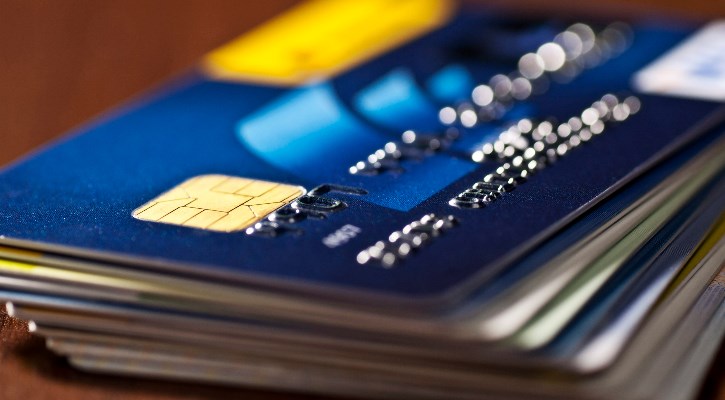The buy now pay later (BNPL) trend recently got a validation boost when Silicon Valley giant Apple jumped into the arena. The iPhone maker, known to have a keen understanding of the pulse of global consumer trends, aims to ride the new wave of consumerism with its own BPNL offering.
The demand for interest-free installment payment products has seen explosive growth in recent times. As a result, the BNPL market is expected to skyrocket to US$656 billion by 2026, fuelled by our propensity for instant gratification.
While Apple's foray into BNPL adds a degree of competitiveness, the following incumbent players are well-positioned to maintain their dominance. Their global footprint, early lead and strategic partnerships with key retailers will continue to attract consumers, perhaps more so now as spiralling inflation continues to crimp affordability for big-ticket items.
Online card and payment processer Marqeta (MQ) offers the infrastructure and tools necessary for digital, physical, and tokenised payments without the need for a traditional bank. It counts companies such as DoorDash, Klarna, and Block among its clients.
The Marqeta card-issuing platform provides its customers with the infrastructure and application programming interfaces (APIs) needed to build and rapidly deploy innovative card payment systems. "The unique capabilities and flexibility of Marqeta’s platform has allowed it to find success with fintech and technology companies, with buy now pay later firms and Block being the most notable," a Morningstar equity report says.
While growth may decelerate from its 2021 highs, Marqeta will continue to enjoy strong revenue growth, "driven by its exposure to high growth firms like its buy now pay later customers and Block," the report adds.
Marqeta had a strong Q1 performance, racking up US$37 billion in total processing volume (TPV) and net revenue of US$166 million for the quarter, a jump of 53% and 54%, respectively, from the same period in 2021.
However, this growth has not rectified a problem with its undiversified customer base, warns Morningstar equity analyst Michael Miller, who pegs the stock’s fair value at US$13. "The company is heavily exposed to Block, buy-now-pay later firms, and food/delivery services that provide it with substantial growth just from its existing customer base," he says.
Block will remain a major customer for Marqeta, asserts Miller, but adds that the company "will be able to diversify its customer base with new clients and growth from its buy now pay later vertical."
Payment pioneer PayPal (PYPL) had amassed 426 million active accounts at the end of 2021, including 34 million merchant accounts. It also owns Xoom, an international money transfer business, and Venmo, a P2P payment platform.
PayPal’s buy now, pay later (BNPL) service grew a staggering 256% in Q1, compared to the same period in 2021, with more than 18 million consumer accounts now using its product.
Building on its Pay in 4 installments service, launched in 2020, the company recently rolled out a more flexible Pay Monthly BPNL product that allows customers to pay for purchases in six to 24 monthly installments.
"PayPal’s development of a network of both merchants and consumers early in the evolution of e-commerce allowed the company to build and maintain an enviable competitive position," our latest report says.
"PayPal remains a somewhat unique player within the payments space,” says Morningstar equity analyst Brett Horn.
While growth could decelerate in 2022 given global macro headwinds, "PayPal has a path to better growth over the next few years and it can continue to generate solid growth over the long haul as it rides the secular shift toward electronic payments," Horn says. He recently lowered the stock’s fair value to US$139 per share from US$145, prompted by near-term headwinds.
Formerly known as Square, Block (SQ) provides payment acquiring services to merchants, along with related services. The company also owns Cash App, a P2P payment network and also operates in Canada, Japan, Australia, and the UK. It generates about 5% of revenue outside the US.
In early 2022 Block acquired Afterpay for US$29 billion to bulk up its BNPL presence.
"Strategically, the all-stock deal to buy Afterpay looks like another move to push the company’s business model closer to that of PayPal and strengthen the bonds between its Cash App and seller businesses to create a more fleshed-out two-sided platform," says a Morningstar equity report.
Given the success PayPal had with this approach, this is a valid strategy, the report adds.
In the first quarter of 2022, the first since the Afterpay acquisition, the BNPL platform contributed US$130 million of revenue and US$92 million of gross profit, per the company’s note to investors.
Block has integrated Afterpay’s BNLP functionality with its Seller and Cash App businesses in the US and Australia. Nearly 13,000 Square merchants have adopted and processed BNPL sales during the first quarter, adding 10% more active sellers to Afterpay.
"Square has seen dramatic growth over the years, and while it has not been consistently profitable, the company’s position in its niche is solidified and it is nearing the point where it can generate attractive returns over time," says Horn. He recently lowered the stock’s fair value to US$104 from US$124, prompted by lower long-term margin assumptions.





























